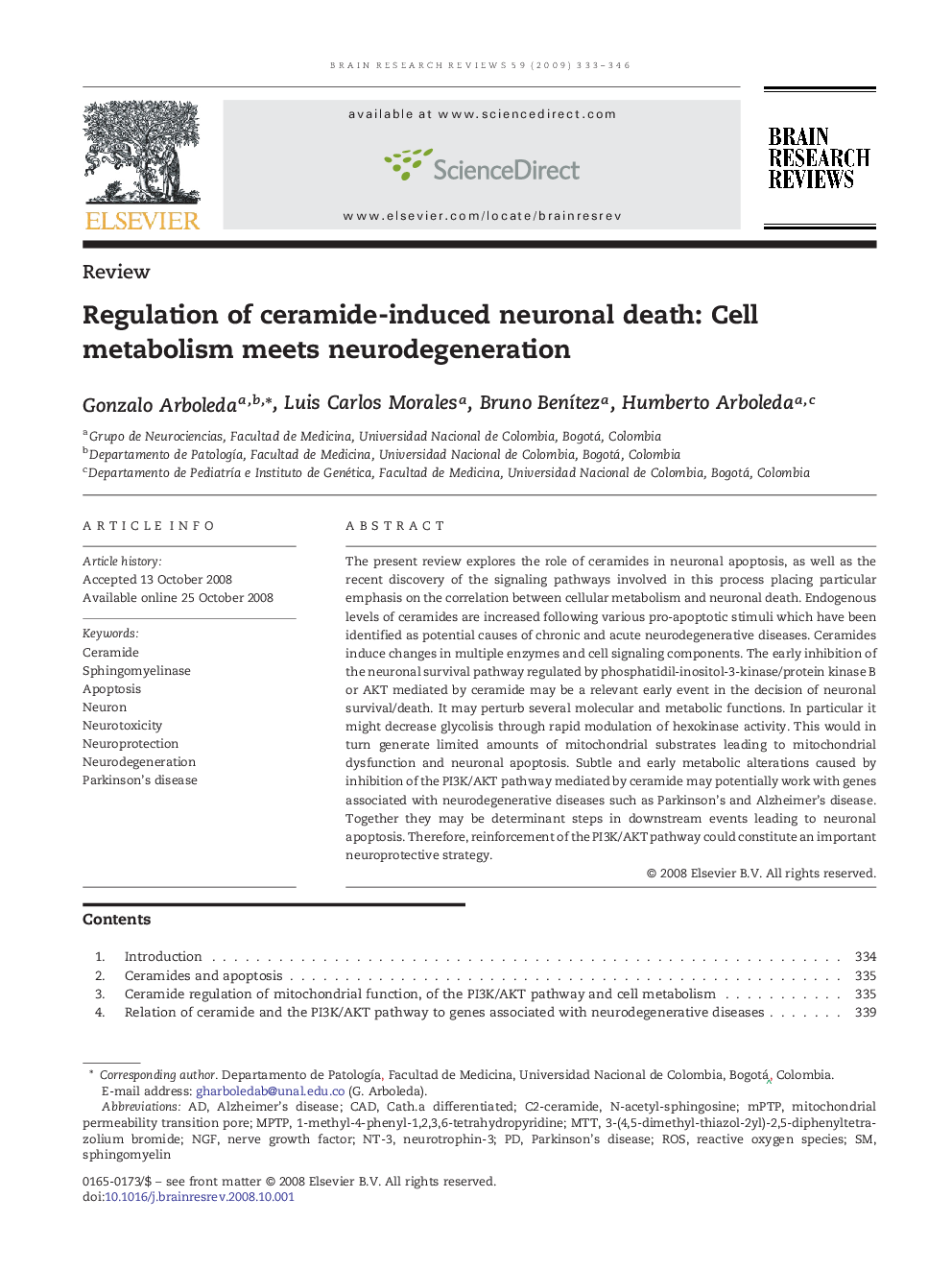| Article ID | Journal | Published Year | Pages | File Type |
|---|---|---|---|---|
| 4333773 | Brain Research Reviews | 2009 | 14 Pages |
The present review explores the role of ceramides in neuronal apoptosis, as well as the recent discovery of the signaling pathways involved in this process placing particular emphasis on the correlation between cellular metabolism and neuronal death. Endogenous levels of ceramides are increased following various pro-apoptotic stimuli which have been identified as potential causes of chronic and acute neurodegenerative diseases. Ceramides induce changes in multiple enzymes and cell signaling components. The early inhibition of the neuronal survival pathway regulated by phosphatidil-inositol-3-kinase/protein kinase B or AKT mediated by ceramide may be a relevant early event in the decision of neuronal survival/death. It may perturb several molecular and metabolic functions. In particular it might decrease glycolisis through rapid modulation of hexokinase activity. This would in turn generate limited amounts of mitochondrial substrates leading to mitochondrial dysfunction and neuronal apoptosis. Subtle and early metabolic alterations caused by inhibition of the PI3K/AKT pathway mediated by ceramide may potentially work with genes associated with neurodegenerative diseases such as Parkinson's and Alzheimer's disease. Together they may be determinant steps in downstream events leading to neuronal apoptosis. Therefore, reinforcement of the PI3K/AKT pathway could constitute an important neuroprotective strategy.
